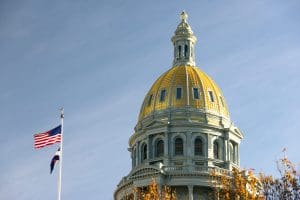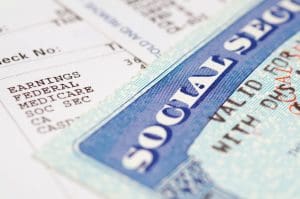The economic crisis caused by the coronavirus pandemic poses a triple challenge for tax policy in the United States. Lawmakers are tasked with crafting a policy response that will accelerate the economic recovery, reduce the mounting deficit, and protect the most vulnerable.
To assist lawmakers in navigating the challenge, and to help the American public understand the tax changes being proposed, the Tax Foundation’s Center for Federal Tax Policy modeled how 70 potential changes to the tax code would affect the U.S. economy, distribution of the tax burden, and federal revenue.
In tax policy there is an ever-present trade-off among how much revenue a tax will raise, who bears the burden of a tax, and what impact a tax will have on economic growth. Armed with the information in our new book, Options for Reforming America’s Tax Code 2.0, policymakers can debate the relative merits and trade-offs of each option to improve the tax code in a post-pandemic world.

Should We Tax University Endowments?
Taxing university endowments has gained popularity recently, partly in response to the Biden administration’s forgiveness of student loan debt. Some view it as a means of holding universities accountable for the product they’re selling. Others view it as a tool to tamp down tuition rates or punish ideological opponents. But do these arguments hold water and is an endowment tax sound policy?
7 min read
Coloradans Could Lower Their Income Taxes This Fall
When Coloradans go to the polls this November, they will be given the opportunity to permanently lower their income taxes—or to increase those tax burdens.
4 min read
California Can’t Give Up Tax Increases
California is no stranger to high taxes, and the state has enough going for it that its economy can withstand higher tax burdens than would be viable in other parts of the country. But there’s always a tipping point.
6 min read
Tax Treatment of Social Security Benefits Remains a Confusing Matter for Taxpayers
The Social Security Administration (SSA) announced the cost-of-living adjustment for Social Security payments based on inflation over the previous year. This has brought renewed attention to how the tax code treats Social Security benefits, which can be a confusing subject for taxpayers.
4 min read
Inflation Is Surging, So Are Federal Tax Collections
Federal tax collections are approaching the highest levels in U.S. history set during World War II and again during the dot-com bubble in 2000. Meanwhile, federal spending in FY 2022 was over 25 percent of GDP—a level only exceeded during the height of the pandemic in 2020 and 2021, and during World War II.
4 min read
What the EU Gets Wrong About “Tax Fairness” and How Principled Tax Policy Can Help
A more principled EU tax system will increase economic growth across the economy and provide the government with stable finances for spending priorities.
7 min read
West Virginia Voters Will Determine the Scope of Potential State Tax Reform
West Virginia Amendment 2 would not directly reduce tangible personal property taxes—on cars, inventory, or machinery and equipment. It would, however, empower the legislature to consider such reforms.
4 min read
Tax Hike Proposals Live on Despite Being Dropped in the Inflation Reduction Act
President Biden proposed a 7-point hike in the corporate tax rate to 28 percent, a new minimum book tax on corporate profits, and higher taxes on international activity. We estimated these proposals would reduce the size of the economy (GDP) by 1.6 percent over the long run and eliminate 542,000 jobs.
6 min read
Tyreek Hill’s Tax Liability with Every NFL Franchise
When NFL star wide receiver Tyreek Hill weighed offers from the New York Jets and the Miami Dolphins, no doubt there was a lot on his mind. But one consideration towered over the rest, at least according to Hill himself: signing with the Jets “was very close to happening,” but “those state taxes man. I had to make a grown-up decision.”
7 min read
Focusing on Wealth Inequality Is Counterproductive
While there is more we can do to encourage lower- and middle-class households to save more and build wealth, a closer, more comprehensive look at the data and trends in other countries suggests that America’s wealth gap is not as alarming as some may think.
5 min read